- Home
- Janet Dailey
Aspen Gold
Aspen Gold Read online
Aspen Gold
Janet Dailey
CONTENTS
CHAPTER ONE
CHAPTER TWO
CHAPTER THREE
CHAPTER FOUR
CHAPTER FIVE
CHAPTER SIX
CHAPTER SEVEN
CHAPTER EIGHT
CHAPTER NINE
CHAPTER TEN
CHAPTER ELEVEN
CHAPTER TWELVE
CHAPTER THIRTEEN
CHAPTER FOURTEEN
CHAPTER FIFTEEN
CHAPTER SIXTEEN
CHAPTER SEVENTEEN
CHAPTER EIGHTEEN
CHAPTER NINETEEN
CHAPTER TWENTY
CHAPTER TWENTY-ONE
CHAPTER TWENTY-TWO
CHAPTER TWENTY-THREE
CHAPTER TWENTY-FOUR
CHAPTER TWENTY-FIVE
CHAPTER TWENTY-SIX
CHAPTER TWENTY-SEVEN
CHAPTER ONE
A Learjet streaked across the crisp autumn air, its nose tipped down in a slow but steady angle of descent. Below, the Rockies loomed, mighty upthrusts of granite with spruce. It was a wild land, an ageless land, harsh and beautiful by turns. Its unbridled grandeur was limitless constantly challenging the strong and mocking the weak-and always indifferent to man’s attempts to tame it.
Here, where great herds of elk once grazed the high mountain meadow, five hundred head of crossbred Hereford and Black Angus cattle trailed across the autumn yellow grass, flanked by a half dozen riders. On the right, a river of aspen gold tumbled down the stony breast of a mountain slope, crashed through a black-green wall of pine, and spilled its bright yellow flood onto the meadow.
Sunlight glinted on the jet’s polished surface. Old Tom Bannon caught the flash of metal and threw back his head, directing his gaze skyward, away from the cattle being driven to the winter pasture near the headquarters of Stone Creek Ranch.
The ancient Stetson hat on his head was brown and weather-beaten like the eighty-two-year-old face it shaded. The big hands folded across the saddle horn were speckled with liver spots, and age had fleshed up his big-boned frame and shot his hair with gray.
His widely spaced and deep-set eyes looked out from beneath shaggy brows and searched the flawless October sky for the source of the light flash that had jarred him from his silent reminiscences of past autumn cattle drives. The sight of the sleek aircraft hurtling up the valley like a white arrow flying low-too low-brought his hard, square jaw together.
“Will you look at that blasted fool?” Old Tom flung a hand in the direction of the plane, directing the sharp-edged words at his son and namesake, Tom Bannon. “What in thunderation is going through his head to be flying that low? It’s a damned fool stunt, that’s what it is.”
Following the line of his father’s outstretched arm, Tom Bannon spotted the private jet. At thirty-six, he was a younger and leaner version of his father, with a face like the mountains, full of crags and hard surfaces, a face that wasn’t handsome, yet one any woman would took at twice. Those who knew him well never called him Young Tom, or even Tom; he was simply Bannon. He’d been that from the first moment his father had set eyes on him and proclaimed, “He’s a Bannon, right enough.”
“What d’ya bet it’s one of those idiots from Hollywood taking a scenic tour before landing in Aspen?” Old Tom challenged.
When Bannon saw the insignia of Olympic Pictures painted on the plane’s white fuselage, he had an idea who was on board, but he didn’t waste time on speculation. Instead his glance sliced to the cattle bunched in front of the open gate as the droning whine of the jet’s engines began to make itself heard.
“Ned! Hank!” he shouted to the two riders on the flanks. “Push ‘em through the gate!”
He spared one look to the rear of the herd, locating his nine-year-old daughter, Laura. She trailed behind, her head bobbing from side to side, her slim shoulders dipping and swaying, her fingers snapping to the beat of the rock music coming over her headset. Oblivious to everything but the song, she hadn’t heard his shouted order.
Bannon whistled a shrill command to the two cow dogs trotting alongside her pinto. Like twin streaks, they shot after the herd, harrying them from the rear while Bannon pushed at the balking leaders, reluctant to leave the summer range. Ignoring their bawls of protest, he rode his buckskin against them, urging them forward with his voice and the slap of a coiled lariat against his thigh.
From the knoll, Old Tom watched as the first of the cows went through, stiff-legged and suspicious, heads lowered in distrust. But one look at the plane speeding through the sky and Old Tom knew they’d never get the rest of the herd through. The plane was so close he could see the pilot’s dark aviator glasses and the faces pressed close to the cabin’s porthole windows.
He yelled anyway: “Don’t let ‘em break. Don’t let ‘em break!”
The jet thundered by, a scant three hundred feet above the mountain’s shoulder and the herd. The noise of its engines caught up with them, breaking across the cattle in a roar that vibrated the air and the ground. The aging red roan beneath Old Tom-a horse that never turned a hair at the blast of a thirty-ought-six between its ears-sank into a crouch, then spun in a half circle, joining the cattle that wheeled as one and bolted back across the meadow, their tufted tails raised high in panic.
For Old Tom, the sight of the stampeding herd and the racing riders was a patch from his youth, when half-wild cattle had run on the ranch. Caught up by the memory, he suddenly felt young again himself and spurred the roan after the herd.
Far ahead, Old Tom spotted his granddaughter sawing on the reins, regaining control of her frightened pinto. He took an instant pride in her skill. From her earliest talking days, he’d taught her to ride like that-loose and straight in the saddle yet always balanced, prepared for any sudden moves by her mount.
Then he saw the wall of aspens beyond, and she was forgotten. If the cattle made it into that dense timber, they’d scatter like leaves in the wind. It would take a day-maybe two-to gather them up again.
“Keep ‘em in the meadow!” he shouted. “Don’t let ‘em get in those trees!”
But the fading rumble of the jet’s engines and the loud drum of cloven and shod hooves drowned out his call. Then Old Tom saw that the warning had been needless. Bannon had seen the same thing, and had the buckskin stretched out flat, streaking to catch the leaders and turn them before they reached the timber.
Old Tom watched. There’d been a time when he and the old man could have made a race of it, but no more. No more.
Inside the jet’s lushly appointed cabin, Kit Masters sat on her knees, her shoes kicked off, her long legs tucked beneath her as she leaned across the back of the pewter velvet sofa to look out the window. A hand slid across her back, then settled with familiar case on the rounded jut of a hipbone. Kit smiled, recognizing the touch of that hand. She glanced back, automatically tucking the loose tumble of honey blond hair behind an ear as John Travis folded his six-foot-two-inch frame onto the plump sofa cushion, angling his body toward hers.
He flashed her one of his trademark smiles, a smile that changed his face from merely sexy to warmly disarming.
“The pilot said we should be flying over your place shortly. Anything look familiar to you yet?” John Travis briefly peered out the window, the downward tip of his head bringing into view the sun-lightened streaks in his darkly gold hair.
“Nearly everything.” Idly Kit studied his lean and smoothly sculpted face. It was a strong face, handsome with well-defined bones and a dimpled chin, a face made even more unique by its combination of charm and blatant sex appeal. A combination that had proved to be irresistible to the world at large ever since John Travis had burst onto the Hollywood scene fifteen years ago, soaring to
almost instant stardom.
Looking at him, Kit was struck again by the illusory feeling that she’d known John Travis all her life, when, in fact, she’d met him for the first time just six short weeks before, at a party she’d attended only days before auditioning for the female lead in his new, yet-to-be-filmed movie, White Lies. A role she’d ultimately won, with the shooting scheduled to begin in a matter of weeks.
Kit turned back to the window, smiling when she recalled startling changes that had taken place in her life these last six weeks-all the fanfare and publicity that had surrounded her every move lately. Her head was still spinning from it all. As much as she had loved it, she was ready for things to return to a kind of normalcy.
“If it’s all so familiar to you, tell me where we are.” John Travis arched a challenging look her way, a faintly ironic color to his blue-gray eyes.
“We’re flying over Stone Creek,” Kit replied easily, suppressing a slight twinge of pain, her nerves tensing at the sight of it.
“Stone Creek?” He peered out the window again. “I don’t see any creek down there.”
Her soft laugh drew a glance from Chip Freeman, the director and screenplay author of White Lies. But the instant his myopic eyes, aided by bottle-thick glasses, registered the blur of granite and gold mountains beyond the plane’s windows, he turned back to the padded black-leather bar trimmed with chrome. The quick bobbing of his Adam’s apple betrayed the fact he was a white-knuckle flier of the highest order.
Kit’s agent, the stout and stubby Maury Rose, gave no indication that he’d heard her as he continued his nonstop hustling of publicist Yvonne Davis, determined to get Kit the lion’s share of media attention at the charity dinner J. D. Lassiter, the billionaire owner of Olympic Pictures, was giving that evening.
Paula Grant was the Learjet’s one remaining passenger, a veteran soap actress who possessed that exotic combination of flaming red hair, porcelain skin, and green eyes-a hard and sleek kind of beauty that matched the bitchy characters she portrayed so well. She listened with only half an ear to the by-play between Kit and John Travis as she gazed out the window, intent on the mountain scenery, her deep leather cabin chair swiveled in a conversational mode toward the sofa.
“Stone Creek,” Kit explained, “is the ranch that adjoins ours.”
Ours. She sobered at her choice of pronouns. Silverwood could no longer accurately be called ours. After the death of her father eight months ago, ownership of the four-hundred-acre family ranch had passed solely to her.
The image of her father-the dark and handsome Clint Masters-came readily to her mind. She had recognized long ago that she’d inherited his blood, his recklessness, and his insatiable love of life.
She hadn’t been back to the ranch since the funeral-not by choice, but by circumstance. She tried and failed to imagine the ranch house without him in it, without his laughter to fill it.
“Look at all those cows running across the meadow,” Paula Grant announced to no one in particular. “And those cowboys chasing them. Good Lord, Kit, don’t tell me the Old West is still alive?”
Kit spotted the stampeding herd and groaned in dismay. “Oh, no, we’ve spooked the cattle. Old Tom’s going to have my head when he finds out.”
“I take it Old Tom owns the cattle.” This close to her, John Travis noticed the sweep of her lashes, the faint freckling across her nose, and the curve of her mouth.
“He does,” she replied, her smile radiating that sunny friendliness that had first attracted him to her.
On the surface, Kit Masters seemed typical of thousands of blond wannabe’s who possessed that breezy, California look. Hollywood teemed with that type. But Kit had that indefinable something that set her apart from all the others, something beyond her blonde good looks, her incredibly expressive face and unusual deep blue eyes. Over the years, it had been given various names screen magnetism, star quality, or, simply ‘it’. A quality that couldn’t be manufactured or faked, one that either existed naturally or it didn’t.
“They’re moving the cattle down from the summer range,” Kit offered in absent explanation. “When I was growing up, Dad and I went over to Stone Creek every spring and helped with the branding and ear-tagging, the vaccinating, cutting, and castrating, then drove the herd up to the high country for the summer. In the fall, we’d help bring them down,” she recalled, and thought of Bannon, who was so inextricably woven into all her memories of the past. The thought of him revived the old hurt-and the thready tension. She pushed them to the back of her mind. After ten years of practice, she’d become quite skilled at that.
“I simply cannot picture you punching cows, Kit,” Paula Grant stated with a bemused shake of her head.
John Travis couldn’t help agreeing with Paula Grant’s observation, especially when he glanced at Kit, seeing the confident and self-assured tilt of her head.
Kit laughed at her friend’s remark and immediately adopted a thick drawl. “Well, Paula honey, I’m plumb sorry you can’t see me punching cows, but I did it just the same.” She abandoned the accent. “Daddy had me on a horse before I learned to coo-to my mother’s horror, I might add. By the time I was two years old, I had a pony of my own. At three, he gave me a miniature lariat and I drove the dogs and chickens crazy trying to rope them. When I was six, I was riding a full-sized horse.” Her smile widened. “Of course, my mother countered all that by enrolling me in ballet class, making sure I took piano lessons, and dragging me off to concerts in the Music Tent and performances at the Wheeler Opera House. If I was going to be a cowgirl, she was determined to make me an urbane one.”
“Very urbane,” John Travis agreed, taking in the drops of chunky gold that dangled from her earlobes and mixed with strands of long blond hair that ran faintly lawless back from her face. A trio of heavy gold bracelets circled her wrist and clashed with the bright coral jacket she wore over a grape-colored cashmere tunic and slacks. A gold flyaway coat, carelessly thrown over the arm of the sofa, completed the bold and thoroughly modern ensemble-an ensemble that few women had the flair to carry off with any degree of sophistication. Kit was one of them.
“Paula, John T. Look.” She pressed closer to the window, her expression showing an excitement that made her appear much younger than thirty-two. “There’s Silverwood. My home.”
Picking up on the warmth in her voice, John Travis glanced out the window. Attachment to a place was something he’d never known growing up as he had on a succession of military bases scattered over half the globe. At seventeen, he’d run away to California rather than face another move to another base and another strange school. He’d taken up acting on a dare, trading one transient life for another.
With idle curiosity he studied the buildings nestled at the apex of a triangularly shaped valley, walled by two sprawling, snowcapped ridges of the Rocky Mountains. A picturesque barn, weathered gray by the elements, sat in the center with wood fences stretching to make square designs across the valley. In a grove of aspen trees stood a rambling, clapboard house with three gables and a porch that wrapped all four sides of the building.
“It looks positively rustic and quaint, Kit,” Paula said on a note of rare approval.
“It does, doesn’t it?” Kit murmured, caught up in the memories of the good times she’d had there-and the sad ones.
“It’s the setting that does it,” Paula stated. “The mountains rising behind it. The fabulous fall colors. I thought nothing could rival autumn in New England, but this”-she lifted a ringed hand to indicate the view from the jet’s window-“this is incredible.”
Kit’s gaze wandered from her childhood home to the mountains that autumn had painted with distilled sunshine. Drifts of canary yellow gleamed between solid ranks of spruce marching up a granite slope. Farther on, still more masses of slender white trunks rose from the forest floor, waving their crowns of saffron, lemon, amber, and topaz.
“I told you how glorious it would be at this time of year, Paula, but you wouldn�
�t believe me,” Kit said with a light trace of smugness. “You’re such a cynic. You should have been born in Missouri instead of Vermont.”
“Cynicism is necessary for survival in this business,” Paula replied. “When you’ve been in it as long as I have, you’ll find that out for yourself.”
“So you’ve said. But you know me-I’m an incurable optimist.” Kit shrugged in unconcern.
“It’s a pity, you aren’t shooting your movie now instead of waiting for winter, John,” Paula Grant remarked. “This scenery is spectacular.”
“Careful, Paula,” John Travis mocked. “You’re starting to sound like a tourist.”
“After the charity benefit tonight, that’s exactly what I’m going to be for an entire month,” she declared, fairly gloating. “No more early-morning calls, no more long days, no more endless pages of dialogue to learn, no more working six days a week. You can’t possibly know how ecstatic I was when the writers decided it was time to kill off Rachel-”
“-and the producers had to buy out your contract,” John Travis inserted.
“That, too,” Paula admitted in a puff. “But after seven years on Winds of Destiny, I think I’ve earned a long and highly paid vacation. Don’t you?”
“Pay no attention to John T.,” Kit said. “He’s spent the last two hours with Chip thinking like a producer instead of an actor.”
“It shows.” Paula turned back to the window. Something caught her eye and she edged closer to the pane. “That mountain,” she murmured. “It looks like it’s made of solid gold. 19
“Considering the price of real estate in Aspen, it might as well be,” John Travis observed dryly.

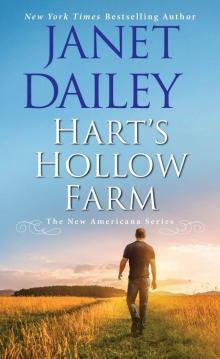 Hart's Hollow Farm
Hart's Hollow Farm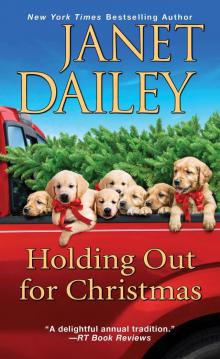 Holding Out for Christmas
Holding Out for Christmas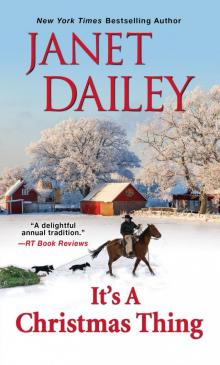 It's a Christmas Thing
It's a Christmas Thing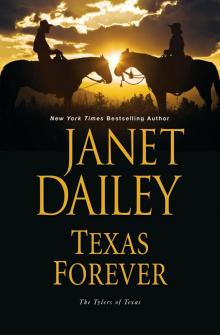 Texas Forever
Texas Forever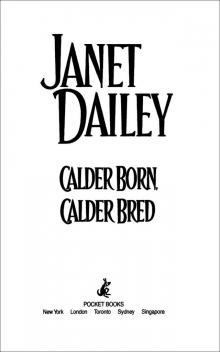 Calder Born, Calder Bred
Calder Born, Calder Bred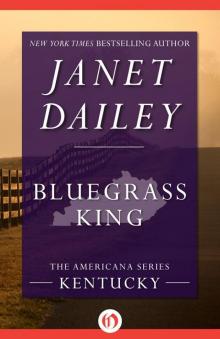 Bluegrass King (The Americana Series Book 17)
Bluegrass King (The Americana Series Book 17)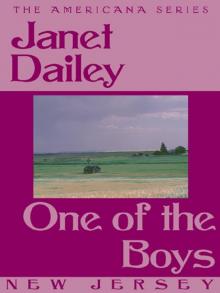 One of the Boys
One of the Boys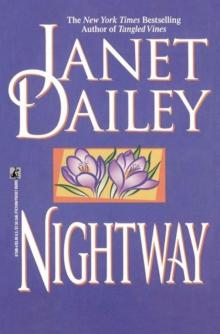 Nightway
Nightway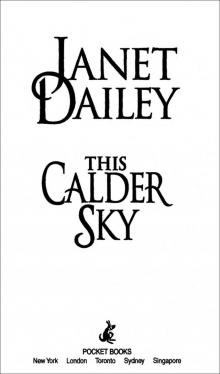 This Calder Sky
This Calder Sky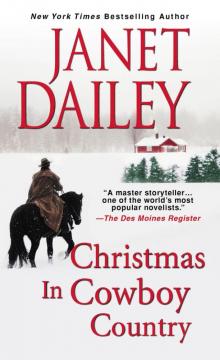 Christmas in Cowboy Country
Christmas in Cowboy Country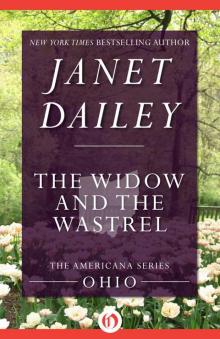 The Widow and the Wastrel
The Widow and the Wastrel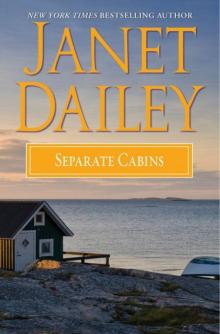 Separate Cabins
Separate Cabins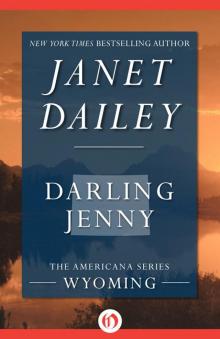 Darling Jenny
Darling Jenny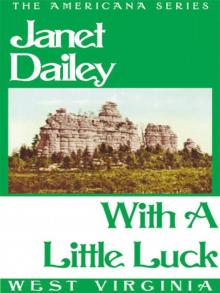 With a Little Luck
With a Little Luck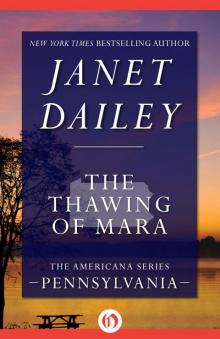 The Thawing of Mara
The Thawing of Mara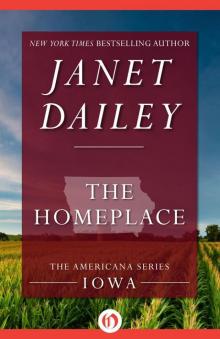 The Homeplace (The Americana Series Book 15)
The Homeplace (The Americana Series Book 15)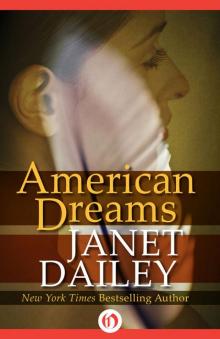 American Dreams
American Dreams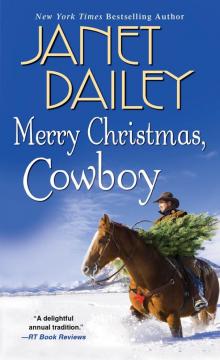 Merry Christmas, Cowboy
Merry Christmas, Cowboy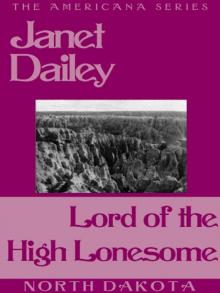 Lord of the High Lonesome
Lord of the High Lonesome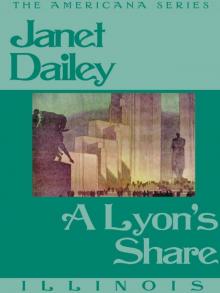 A Lyon's Share
A Lyon's Share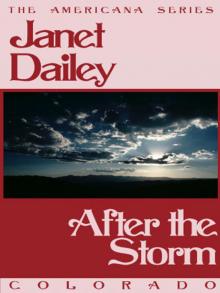 After the Storm
After the Storm Masquerade
Masquerade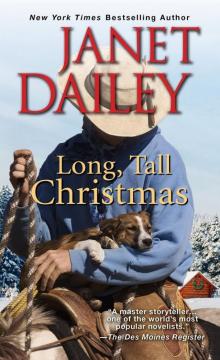 Long, Tall Christmas
Long, Tall Christmas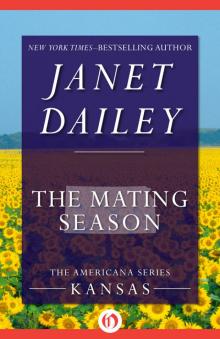 The Mating Season
The Mating Season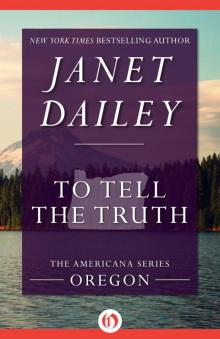 To Tell the Truth
To Tell the Truth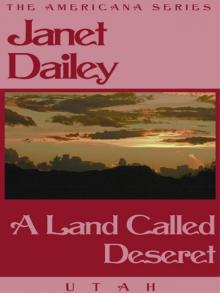 A Land Called Deseret
A Land Called Deseret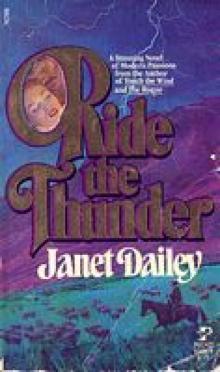 Ride the Thunder
Ride the Thunder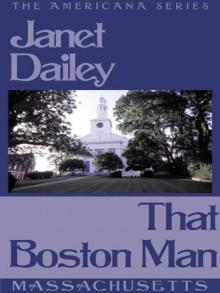 That Boston Man
That Boston Man Wild and Wonderful
Wild and Wonderful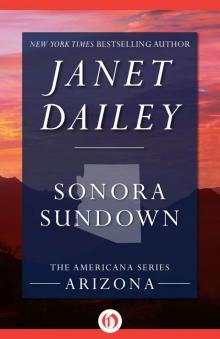 Sonora Sundown: Arizona (The Americana Series Book 3)
Sonora Sundown: Arizona (The Americana Series Book 3)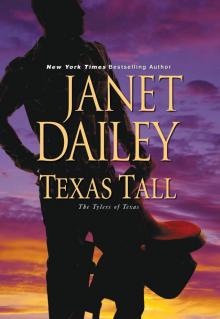 Texas Tall
Texas Tall Giant of Mesabi
Giant of Mesabi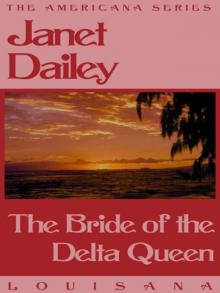 The Bride of the Delta Queen
The Bride of the Delta Queen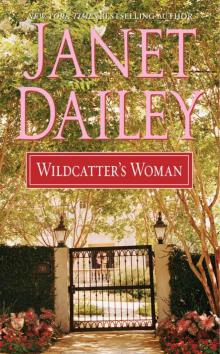 Wildcatter's Woman
Wildcatter's Woman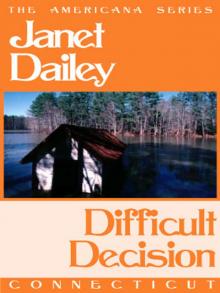 Difficult Decision
Difficult Decision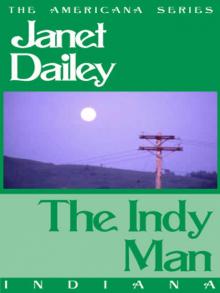 The Indy Man
The Indy Man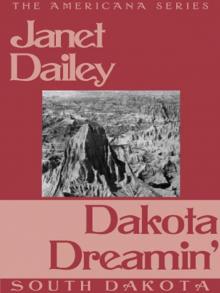 Dakota Dreamin'
Dakota Dreamin' Kona Winds
Kona Winds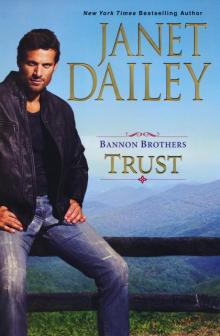 Bannon Brothers
Bannon Brothers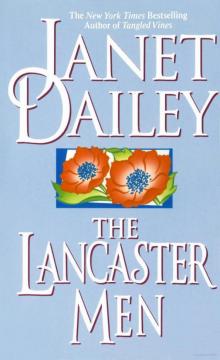 The Lancaster Men
The Lancaster Men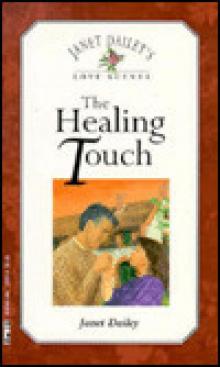 janet dailey- the healing touch
janet dailey- the healing touch Strange Bedfellow
Strange Bedfellow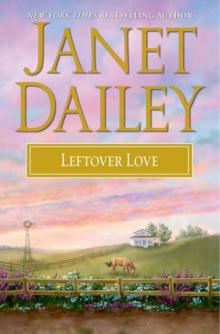 Leftover Love
Leftover Love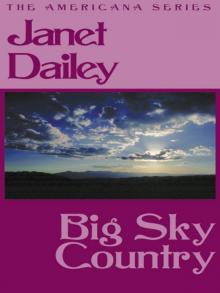 Big Sky Country
Big Sky Country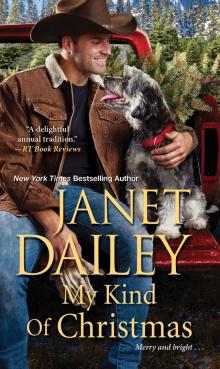 My Kind of Christmas
My Kind of Christmas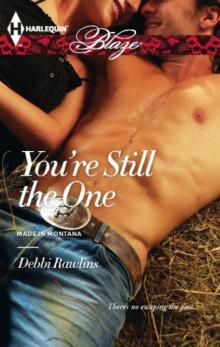 You're Still The One
You're Still The One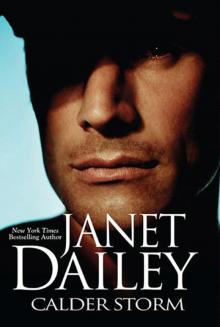 Calder Storm
Calder Storm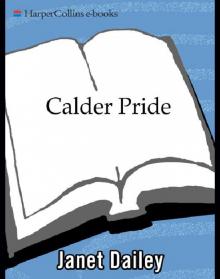 Calder Pride
Calder Pride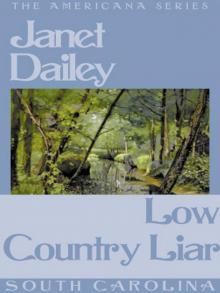 Low Country Liar
Low Country Liar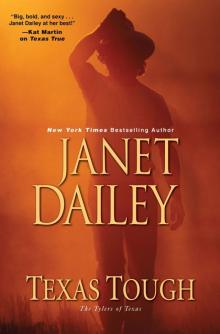 Texas Tough
Texas Tough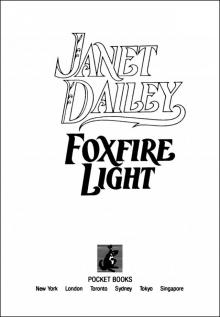 Foxfire Light
Foxfire Light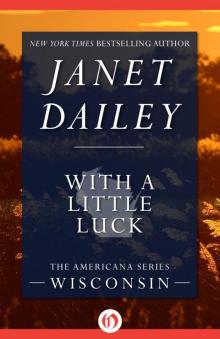 With a Little Luck (The Americana Series Book 49)
With a Little Luck (The Americana Series Book 49)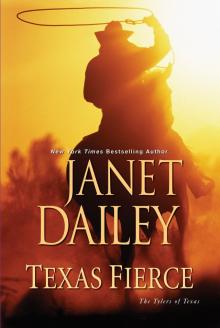 Texas Fierce
Texas Fierce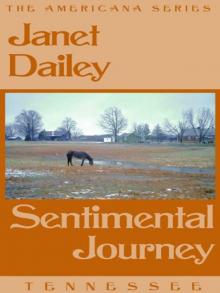 Sentimental Journey
Sentimental Journey The Pride of Hannah Wade
The Pride of Hannah Wade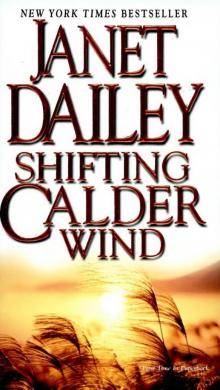 Shifting Calder Wind
Shifting Calder Wind Santa In Montana
Santa In Montana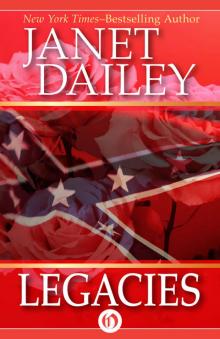 Legacies
Legacies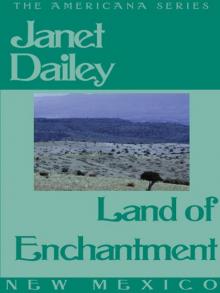 Land of Enchantment
Land of Enchantment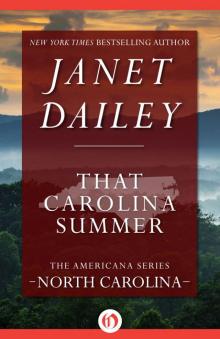 That Carolina Summer (North Carolina)
That Carolina Summer (North Carolina)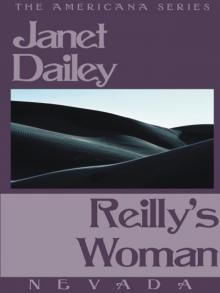 Reilly's Woman
Reilly's Woman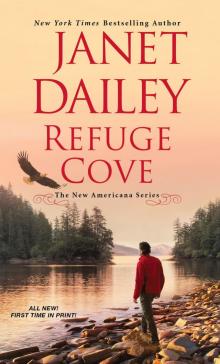 Refuge Cove
Refuge Cove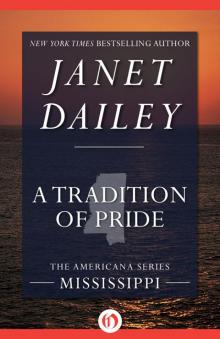 A Tradition of Pride
A Tradition of Pride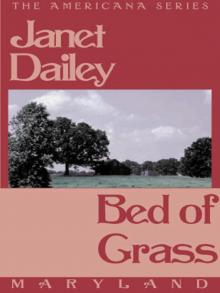 Bed of Grass
Bed of Grass To Santa With Love
To Santa With Love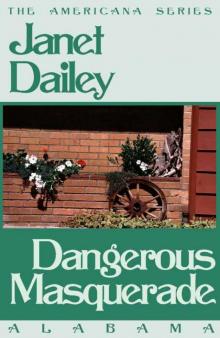 Dangerous Masquerade
Dangerous Masquerade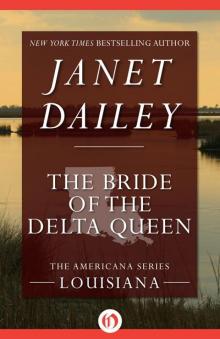 The Bride of the Delta Queen (The Americana Series Book 18)
The Bride of the Delta Queen (The Americana Series Book 18)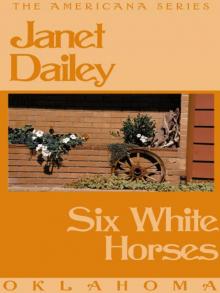 Six White Horses
Six White Horses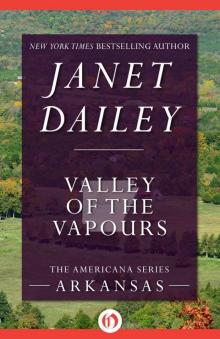 Valley of the Vapours (The Americana Series Book 4)
Valley of the Vapours (The Americana Series Book 4)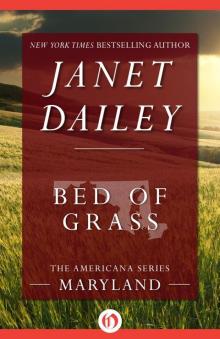 Bed of Grass (The Americana Series Book 20)
Bed of Grass (The Americana Series Book 20)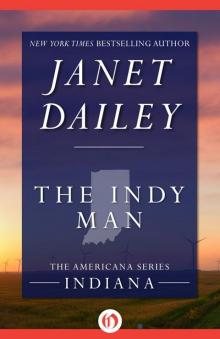 The Indy Man (The Americana Series Book 14)
The Indy Man (The Americana Series Book 14)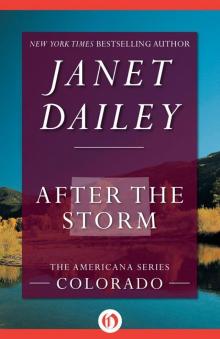 After the Storm (The Americana Series Book 6)
After the Storm (The Americana Series Book 6)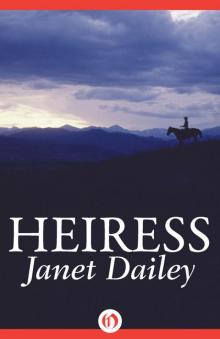 Heiress
Heiress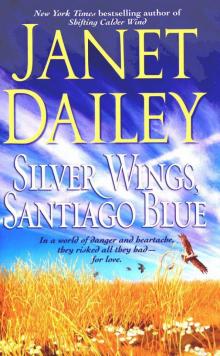 Silver Wings, Santiago Blue
Silver Wings, Santiago Blue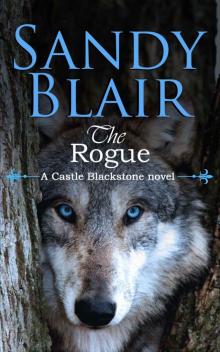 The Rogue
The Rogue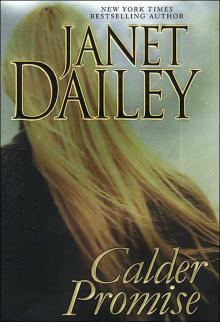 Calder Promise
Calder Promise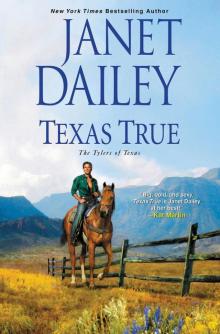 Texas True
Texas True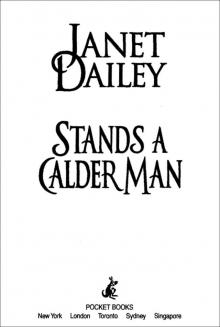 Stands a Calder Man
Stands a Calder Man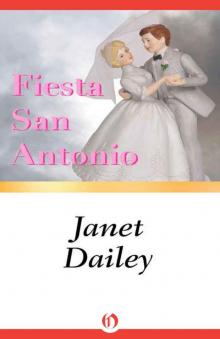 Fiesta San Antonio
Fiesta San Antonio Fire and Ice
Fire and Ice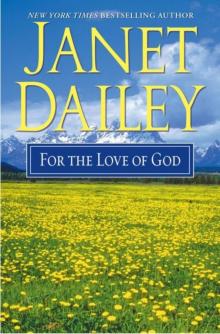 For the Love of God
For the Love of God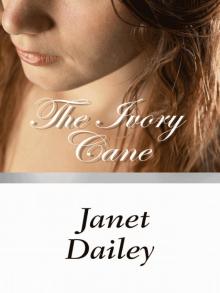 The Ivory Cane
The Ivory Cane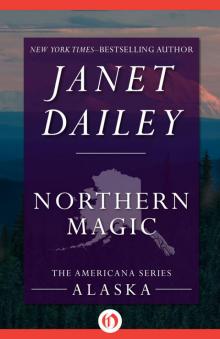 Northern Magic
Northern Magic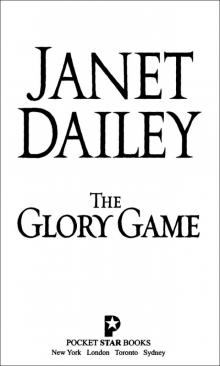 The Glory Game
The Glory Game The Homeplace
The Homeplace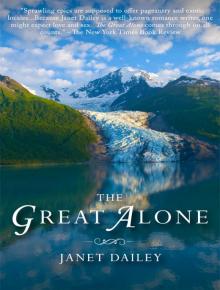 The Great Alone
The Great Alone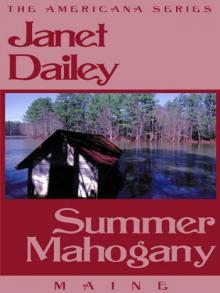 Summer Mahogany
Summer Mahogany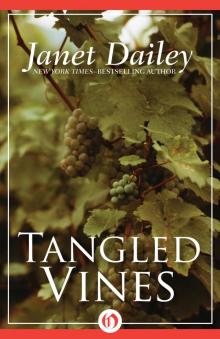 Tangled Vines
Tangled Vines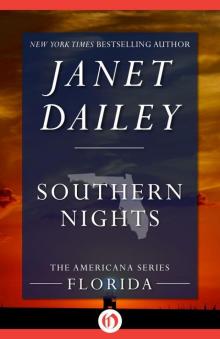 Southern Nights: Florida (The Americana Series Book 9)
Southern Nights: Florida (The Americana Series Book 9)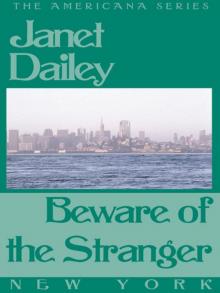 Beware of the Stranger
Beware of the Stranger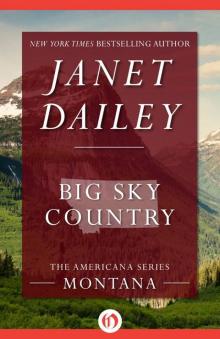 Big Sky Country: Montana (The Americana Series Book 26)
Big Sky Country: Montana (The Americana Series Book 26)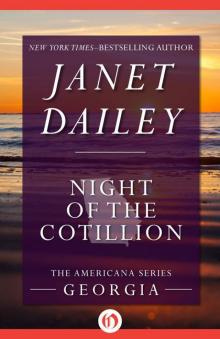 Night of the Cotillion: Georgia (The Americana Series Book 10)
Night of the Cotillion: Georgia (The Americana Series Book 10)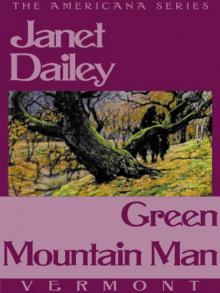 Green Mountain Man
Green Mountain Man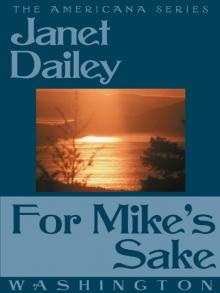 For Mike's Sake
For Mike's Sake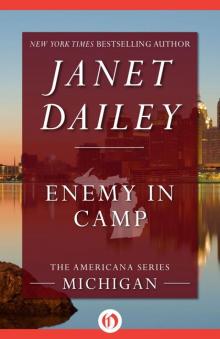 Enemy in Camp (The Americana Series Book 22)
Enemy in Camp (The Americana Series Book 22)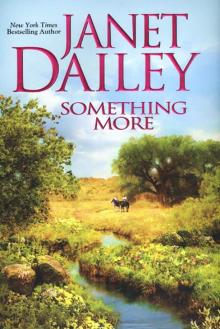 Something More
Something More Rivals
Rivals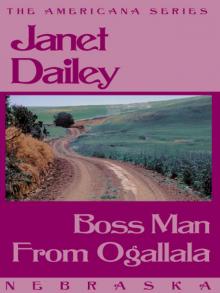 Boss Man from Ogallala
Boss Man from Ogallala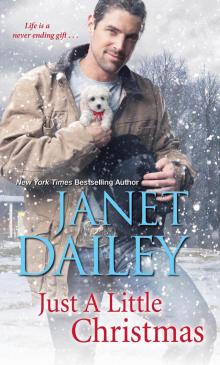 Just a Little Christmas
Just a Little Christmas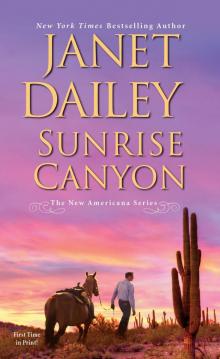 Sunrise Canyon
Sunrise Canyon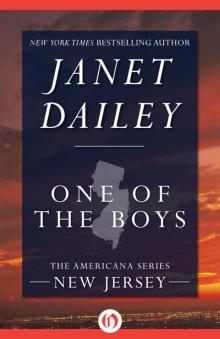 One of the Boys (New Jersey)
One of the Boys (New Jersey)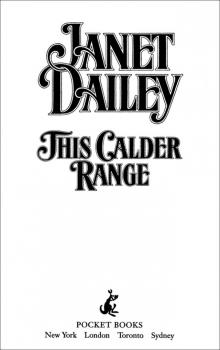 This Calder Range
This Calder Range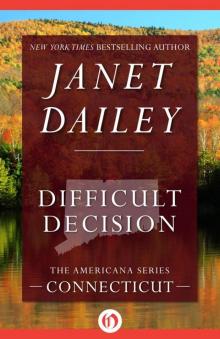 Difficult Decision: Connecticut (The Americana Series Book 7)
Difficult Decision: Connecticut (The Americana Series Book 7)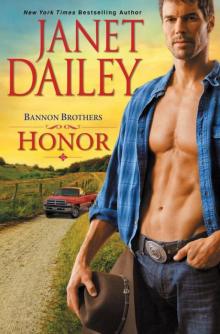 Honor
Honor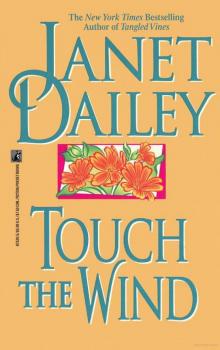 Touch the Wind
Touch the Wind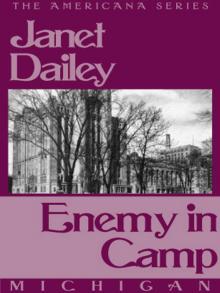 Enemy in Camp
Enemy in Camp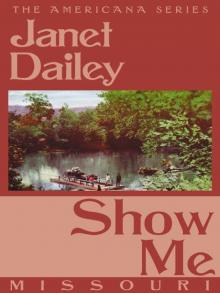 Show Me
Show Me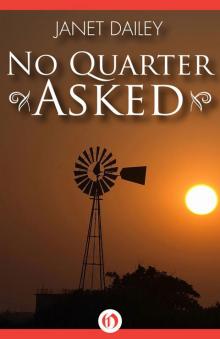 No Quarter Asked
No Quarter Asked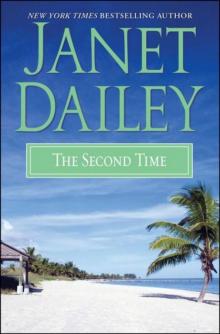 The Second Time
The Second Time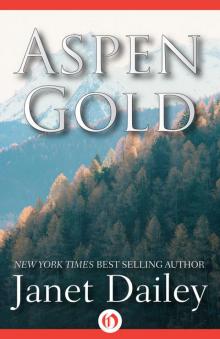 Aspen Gold
Aspen Gold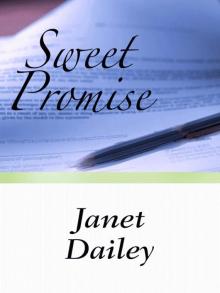 Sweet Promise
Sweet Promise Triumph
Triumph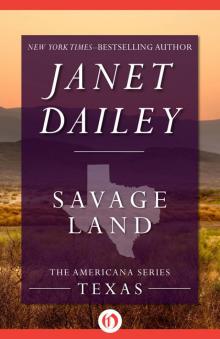 Savage Land
Savage Land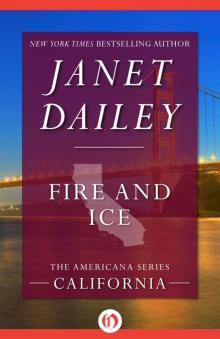 Fire and Ice (The Americana Series Book 5)
Fire and Ice (The Americana Series Book 5)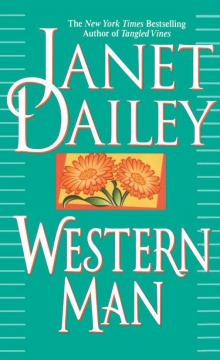 Western Man
Western Man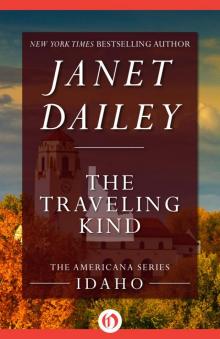 The Traveling Kind
The Traveling Kind The Hostage Bride
The Hostage Bride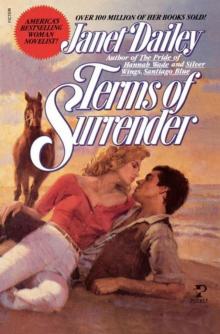 Terms of Surrender
Terms of Surrender Tidewater Lover
Tidewater Lover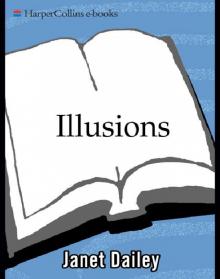 Illusions
Illusions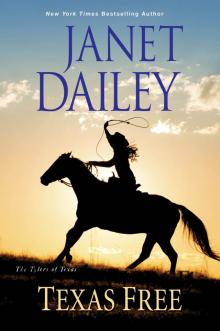 Texas Free
Texas Free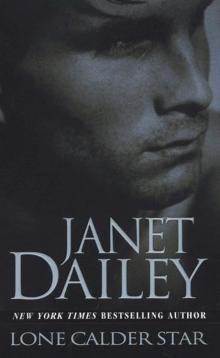 Lone Calder Star (Calder Saga Book 9)
Lone Calder Star (Calder Saga Book 9)